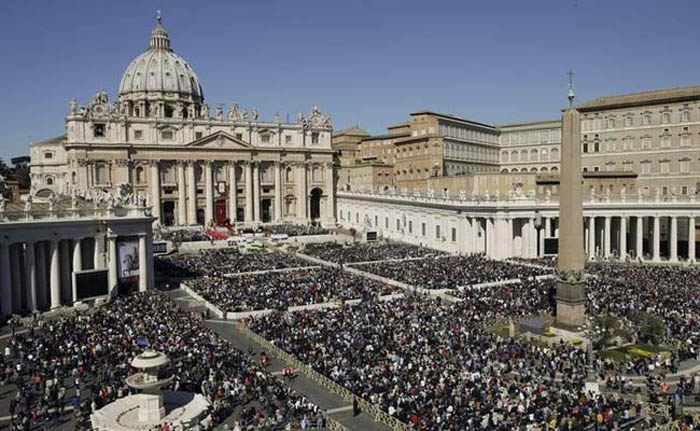Israel has urged member states to oppose the Palestinian draft resolution. U.N. diplomats say the measure is expected to pass given the widespread support Palestine enjoys among non-aligned developing nations, the largest bloc of U.N. members.
Initially, the Palestinians had presented their flag-raising initiative as a joint proposal with the Vatican, but the Holy See`s mission quickly made clear it would not co-sponsor the resolution and asked that all references to the Vatican be removed.
Archbishop Bernardito Auza, the Vatican`s permanent observer at the United Nations, ruled out the possibility that it would let its flag fly at the U.N. prior to Pope Francis` speech before a high-level gathering of the General Assembly on Sept. 25.
"We have no intention whatsoever to do that," he said.
Auza added that the Vatican did not co-sponsor the Palestinian resolution "because we have certainly different priorities." He said the Holy See was undecided about whether to allow its flag to be flown at the U.N. at all.
"Whether or not the Holy See in the future would raise its flag, that question is open," he said.
Washington has described the Palestinian flag initiative as "counterproductive."
While the United States and Israel are expected to vote against the Palestinian resolution, diplomats said the 28-nation European Union was incapable of achieving a unified position.
While most EU members will abstain, more than half a dozen EU member states - including France, Sweden and others - are expected to vote in favour of the Palestinian draft, diplomats told Reuters.
France has been spearheading a push to revive the Israeli-Palestinian peace process, which collapsed in 2014, through an international support group comprising Arab states, the EU and U.N. Security Council members.
In 2012 the General Assembly overwhelmingly approved the de facto recognition of the sovereign state of Palestine. That de facto recognition came after a failed bid by the Palestinians to secure full membership in the United Nations.
More about:
















































